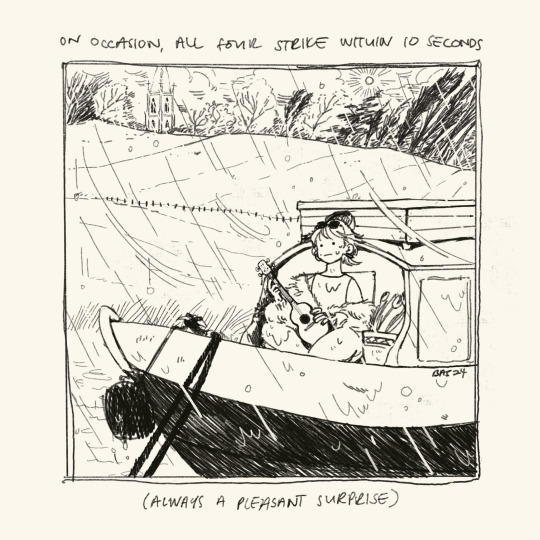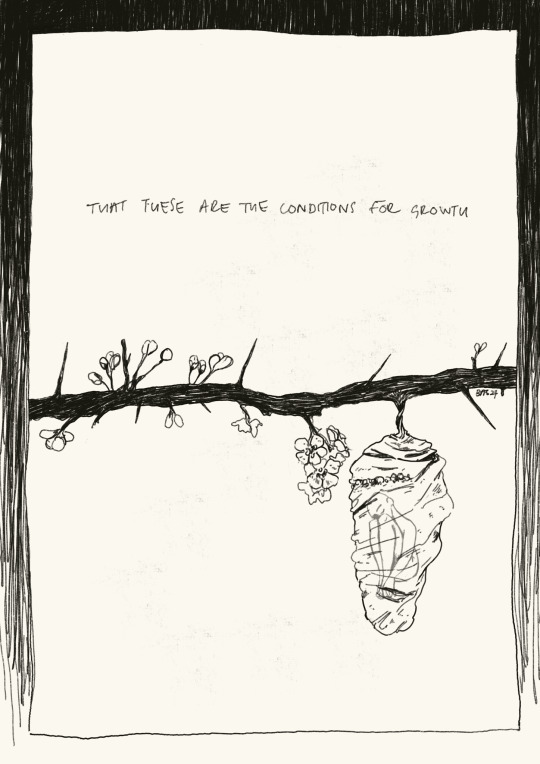#lide: Anglo-Saxon for March
Text




lessons from lide
#lide: Anglo-Saxon for March#journal comic#visual journal#artists on tumblr#comic#comic artist#digital illustration#basil draws#original art#narrowboat
65 notes
·
View notes
Text
8. Will-o’-Wisp, England, 400 words
Lide-monath, 878 AD
Æthelinga Íeg, in the Kingdom of Wessex
“Bikkja!”
Once lessons are over for the day, there is nothing Arthur loves so much as creeping to the edges of the island and sitting amongst the marsh-reeds, listening for idiotic Danes trying - and failing - to sneak through the swamps that surround his and his king’s new fortress when they do not know the way. The causeway to Æthelinga is too well-guarded so the Danes must go through the marshes, but the marshes are dangerous, a labyrinth made of sky and water and reeds. Well below the level of the sea, and heavily swollen when the tides are high. Shallows that a man may walk through give way quickly to deep water or sucking mud that swallow up a soul before they have time to cry out for help. Waterways go round and round in circles unless you know the secret way to row out of them. Angry waterfowl lurk in the greenery to chase out invaders to their home, and, at dusk, when the Danes make most of their attempts in the hopes the fading light and rising evensong will cover the sound of their approach, the marsh-lights come out to dance.
The stupid Danes, thinking they have spotted the lantern-light of a local who knows a safe path through the marshes, follow the lights. To their detriment.
Arthur really is picking up a lot of interesting new curse-words to fling at his Nation-cousins across the sea in their own tongue. In-between rolling around on the dry marshbanks in delighted, gurgling laughter, listening to yet another little troop of Danes get led straight into a large, deep patch of very sticky marsh-mud.
The Danes now firmly stuck in the mud after following their light, Arthur’s fae friends come flitting to him to share in his giggles and boast about their tricks. Arthur praises them for their cleverness, and they dance and preen on his palm when he proffers it, pressing light sparkling kisses to his cheeks.
Arthur’s friends do not have much love for Alfred, human King of Wessex, but had been delighted to see Arthur when he had fled with his king from the Danes at Cippanhamme, and Arthur, oh, Arthur is so very glad to see them.
“Next time you should lead them into the nest of that crotchety old gander,” Arthur tells them, and his friends giggle again in agreement, glowing even more brightly than before.
*Lide-monath (Anglo-Saxon, south/western dialect): ‘loud month’, March
*Æthelinga Íeg (Anglo-Saxon): (Isle of) Athelney
*Cippanhamme (Anglo-Saxon): one mediaeval spelling of many for Chippanham
*Alfred the Great observed the Christmas of 877/878 in his winter-fortress in Chippenham. During the twelve nights, he and his people were attacked by the Vikings, and he was forced to flee into the marshes around Somerset. By Easter, Alfred had re-established an old Iron Age fortress on the isle of Athelney. Defended by the surrounding marshland.
#Vikings in the marsh~ Vikings in the marsh~#Follow all the pretty lights and the results will be quite harsh~#I keep telling myself to stop it with the footnotes but would these shortfics even make sense w/o them???#Shacha fic#Arthur Kirkland#hetalia#Hetalia Halloweenies#also please don't come for me for the Anglo-Saxon; this was before standardised spelling#the Norse is untranslated bc it's KINDA OBVIOUS#also also yes I know I'm a day behind w/ this but I've been sick w/ a hell-cold all week#so being behind by JUST one day is a miracle
17 notes
·
View notes